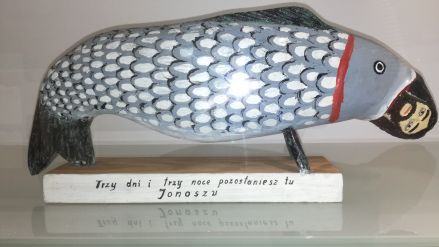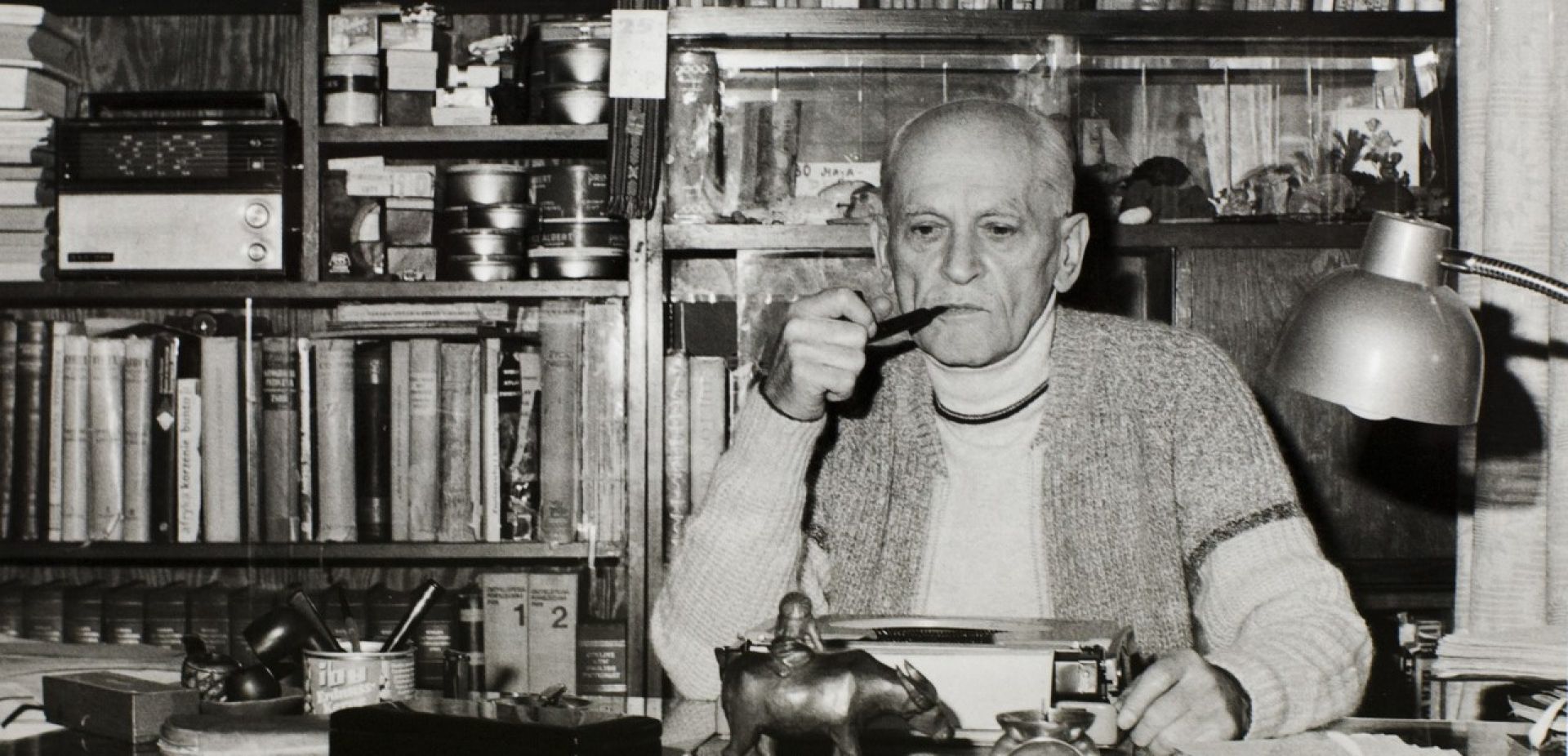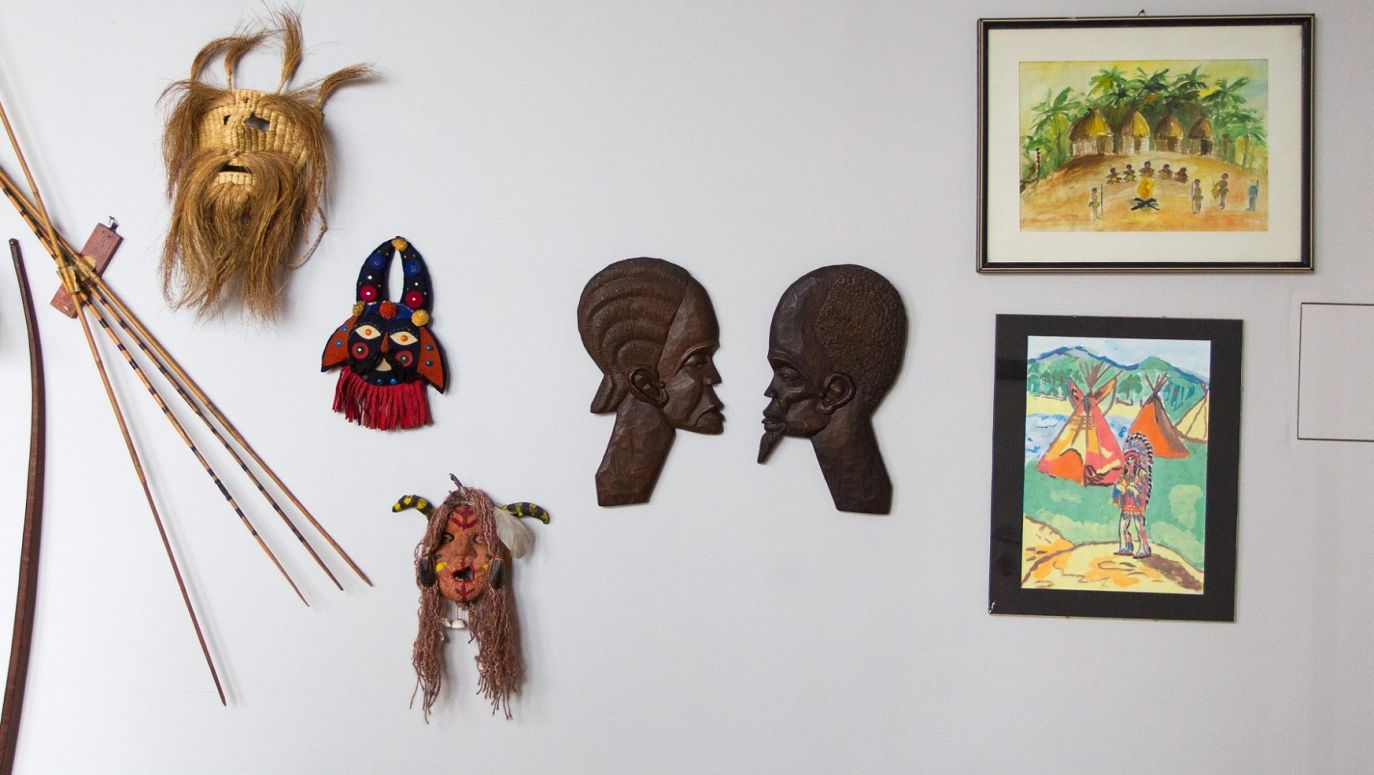In the Polish People’s Republic he was a window on the world. Alfred Szklarski – a dream merchant
19.10.2022
He had American citizenship. He made his literary debut in Nazi-licensed press. He served in communist prison. Who was the father of the novel hero Tomek Wilmowski? A story told by Jarosław Molenda, author of a book on Alfred Szklarski (1912-1992).
Why and when did he return to Poland? And why specifically to Włocławek?
That’s where his mother was from. He had already visited Poland with her once to come back upon the Vistula for good in 1928. This decision was made by his mother who was feeling worse and worse in the US. She was ill, probably she didn’t want to die abroad. Szklarski found himself well in the new reality, he went to college in Warsaw, fell in love…
Did he dream of a diplomatic career?
For sure he was interested in such a job, he was an expert on American-Japanese relations but his life led him elsewhere.
What did he live off as a student?
He finished his studies although it wasn’t easy for him to make both ends meet. I think America taught him entrepreneurship and this characteristic way of think: “you can”. He was intelligent, resourceful, venturesome, earned extra money where he could, be it by giving private lessons or otherwise. He made it.
Did he have no intention of going back to the US?
Who knows what would have happened had it not been for his wife. He believed that America wasn’t for Krystyna. But when the war broke out the American Embassy offered evacuation but only to him but not to his wife who didn’t have American citizenship. He didn’t want to leave her in a war-torn country. He impressed me much with this, anyway he was a very loyal, principled man.
The outbreak of WWII held his father, an American citizen, down in Warsaw…
Yes, for over two years. He went to the US thanks to an exchange of prisoners with Germany.
Meanwhile Alfred Szklarski made his debut in literature. In the pages of Nazi-licensed press!
My impression is that he didn’t quite understand his move. He had literary ambitions and those periodicals gave him the chance to become known. He could hardly undertake physical work because he was ill. He wasn’t the only creator of culture who somehow worked for the Germans. For instance – a considerable group of our recognized actors with Adolf Dymsza atop. The same newspapers as Szklarski were worked for by – as a graphic – Wojciech Mann’s father. There were many such people. They simply did their job like a railway driver, tram driver or shopkeeper.
What would he publish there and how often? Did he use a pseudonym?
He was among the most fertile authors but it has to be stated very clearly that he didn’t write propaganda texts, he didn’t praise German victories or politics. He provided adventure, criminal, even half-erotic books which after all gave the Poles a moment of relief from war reality… Is a deadly sin? He would sign some of them with his pseudonyms.
At the same time he was active with the underground and took part in the Warsaw Rising?
That’s it. He delivered information to the people of the ground which wasn’t taken into consideration by the communist court. Armed, he fought in Ochota under the nom de guerre “Szklarz”. His commander pronounced the best possible judgment on him.

It is difficult to name a thinker, especially one at odds with orthodoxy, who would not use images and scenes from the Apocalypse.
see more
He printed an account of the fights in the capital in “Nowy Kurier Warsawski”?!
Well, that’s astonishing! First, this text is uncharacteristic of Szklarski, second it was published already after the fall of the rising and third – it’s really striking that the Germans printed it as, on the whole, he describes the insurgents’ heroic struggle… Maybe the article passed because the Germans are criticized only a little there? I think we will never learn that.
Why did settle down in Katowice after the war? Had he already lived off writing then?
Warsaw was a city of ruins, together with his wife they resolved to seek happiness in Kraków but they didn’t spend much time there as a chance appeared to find a job and an apartment in Katowice. It was actually Kraków that a special group whose goal was to strengthen Polishness in Silesia, start newspapers and to stimulate creators of culture did set off. Many Poles came there at that time. It was there that he could carry on with his literary career which he commenced in the pages of collaborationist rags. It was also there that prototype Tomek Wilmowski was born, although it didn’t score a success.
How did it come to pass that he ended up in a communist prison?
After the war there began trials of people collaborating with the Germans, also of those writing ones. Szklarski learnt about it and decided to come forward. It seems that he didn’t know the real threat. Perhaps in his own conviction he believed he hadn’t done anything wrong. He struck the wrong moment, there was a biased, even show trial, he had no chance of a just sentence. He was sentenced to eight years – exactly like Blanka Kaczorowska, a true traitor. The incarceration changed him though it didn’t disturb his future career. This time he was lucky finding himself in a group of people who looked upon such cases in a more reasonable manner. They recognized he suffered enough for the sins of youth.
So the Tomek Wilmowski series constituted a window on the world for the readers under communism?
Oh, it wasn’t a window but a shop a window (he laughs). In those day his books were a mixture of Wojciech Cejrowski, Martyna Wojciechowska and Beata Pawlikowska [famous Polish travelers – trans.] in one but 100 times better. Thank to him Poles get acquainted with the most exotic corners of the globe – which could be reached by only few.
Did the writer create the scenery for each volume only from imagination?
On the contrary, he would painfully check everything and confront it with the sources. If only he had contradictory data he tried to verify them, and if there was still doubt, he didn’t publish such information. Some recalled later that Szklarski’s books so perfectly described places he hadn’t visited that when, after many years, they travelled with them in hand everything added up.
”The people’s authority” strived to somehow exploit Szklarski’s popularity for propaganda purposes?
Of course, nevertheless he would defend himself against that as much as he could. From time to time he had to write something in accordance with “the only, righteous political line”, but when subsequent “adventures of Tomek” began to score commercial success, it became clear it was better to use the writer in a different field than coarse, stupefying propaganda.

 SIGN UP TO OUR PAGE
SIGN UP TO OUR PAGE
 As a teenager did he witness gangs warfare in the background?
As a teenager did he witness gangs warfare in the background?





